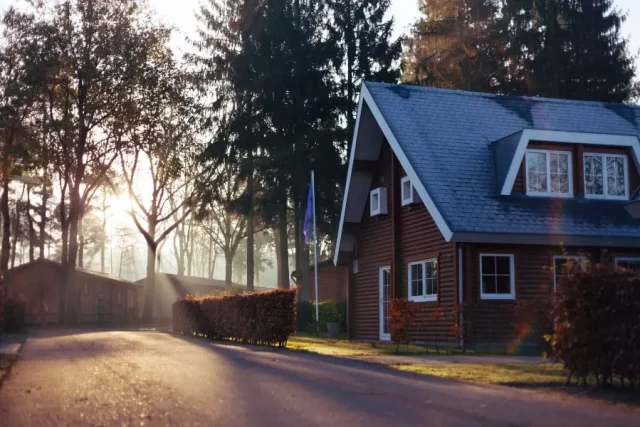There are many reasons why people put their house in a trust. Some of the most common reasons include estate planning and asset protection. In this blog post, we will discuss some of the main reasons why people put their house in a trust. We will also talk about the benefits of doing so. If you are considering putting your house in a trust, make sure to read this blog post!
Estate Planning
One of the main reasons why people put their house in a trust is in estate planning. When you put your house in a trust, it will avoid probate and make the process of transferring your property much easier. This is especially important if you have a large estate. By putting your house in a trust, you can ensure that your heirs get the property after your death. Estate planning allows you to control how your property is distributed after you die. It makes it easier for heirs because they won’t have to go through lengthy probate proceedings or pay expensive legal fees. They can simply take possession of their inheritance without any hassle. If you are considering putting your house in a trust, make sure to talk with an estate planning attorney first. He or she can advise you on the best way to do this so that it is most beneficial for your heirs and makes things easier after death. You can learn more about trusts with LegalVision.
Asset Protection
A trust is an estate planning tool that can help protect your assets. If you are concerned about protecting your assets from future creditors, then a trust might be the answer. Many people transfer their homes into the living trust for this purpose. It is important to note that it does not protect you against all claims or lawsuits, but it does have some advantages in terms of asset protection. A trustee must manage the property and follow instructions left by the creator of the trust (called a “grantor”), which means there will always be someone around who knows what they’re doing when it comes time to sell or distribute assets according to those instructions—and without going through probate court proceedings first. Similarly, trustees can be appointed to manage trusts during the grantor’s lifetime, which can provide some peace of mind in knowing that someone is handling things if you become incapacitated.
Tax Planning
When you put your house in a trust, you can avoid estate taxes. The property is still considered part of your taxable estate, but the trust allows you to pass it along to your heirs without having to pay any taxes. This can be a huge saving if your estate is large enough.
The trust also allows you to take advantage of certain tax breaks that are not available to individuals. For example, you can use the trust to reduce or even eliminate capital gains taxes on the sale of your house. This can be a huge saving if you have owned your home for a long time and have substantial profits from the sale. Putting your house in a trust is a great way to protect it from creditors and lawsuits. The property is still considered part of your estate, but it is protected from being seized by creditors or sued by plaintiffs. This can provide peace of mind in case something happens down the road.
Simplifying Your Estate
If you have a large or complicated estate, consider using a trust to simplify the ownership of your assets. Putting your property in a trust means that it won’t be subject to probate after death, which can potentially save time and money for your heirs. The terms of the trust can also help protect their inheritance from creditors and other potential claims against their estate.
While there are many benefits to placing property in a living trust during life, this option is not right for everyone. Make sure you speak with an attorney before transferring any assets into a living trust. Some types of real estate cannot be transferred into trusts unless they are sold first. For instance, if you own land that has mineral rights attached to it, you may need to sell the land before putting it in a trust.
Protecting Your Children’s Inheritance
One of the main reasons people put their house in a trust is to protect their children’s inheritance. If something happens to the parents and they don’t have a will, the state will take control of the estate and divide it up according to its laws. This may not be what the parents want for their children, so putting the house in a trust can help ensure that their wishes are followed.
Another reason to put your house in a trust is to avoid probate. Probate is a process where the court determines who gets what from an estate after someone dies. It can be expensive and time-consuming, so putting your house in a trust can help speed things up after you die.
Protecting Your Assets From Lawsuits
A revocable living trust can also protect your assets from creditors. When you set up the revocable living trust, the trust becomes its entity and owns all of its property. If someone were to sue you for any reason, he or she could not take your home or other assets that are owned by a properly set up and maintained revocable living trust. This is because a creditor cannot go after what it does not know exists. Since a court has no jurisdiction over property held in an irrevocable trust, a creditor will be unable to reach those assets if they are held in such trusts as well (or at least that’s the theory). Even if there is only one trustee of both types of trusts named in the will, it is still advisable to have separate trustees for each trust. This way, if something happens to the original trustee, there is someone else who can step in and take over management of the trusts.
There are many reasons why people put their house in a trust and these are just some of the most common ones. By doing so, you can ensure that your property will be transferred smoothly after.














